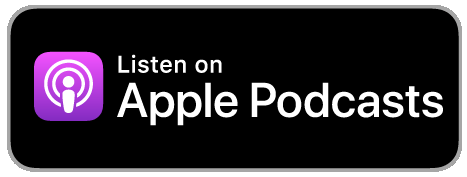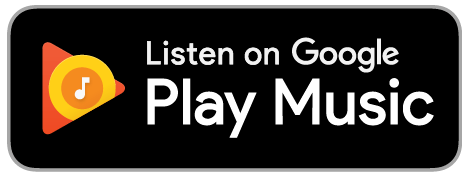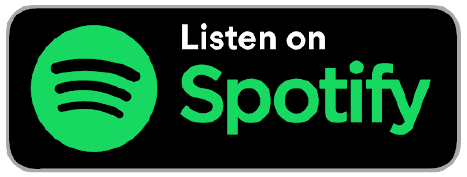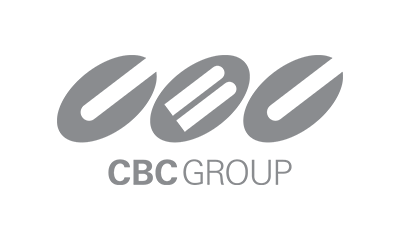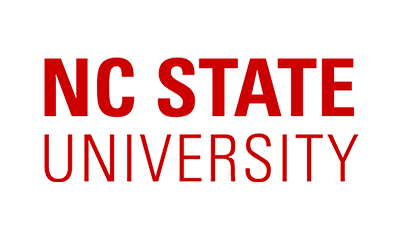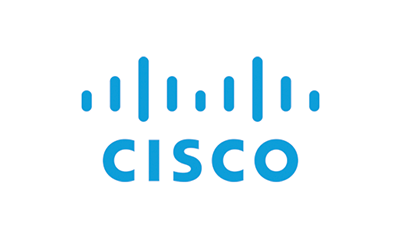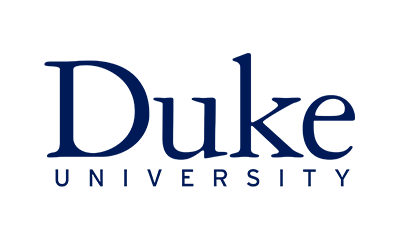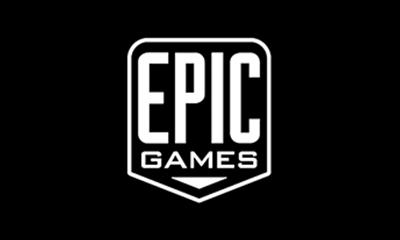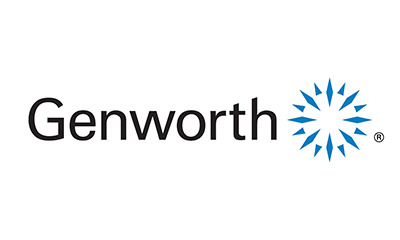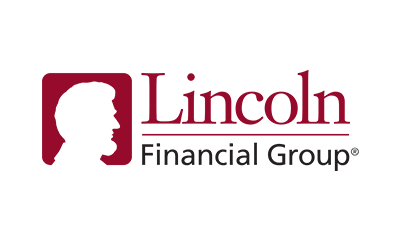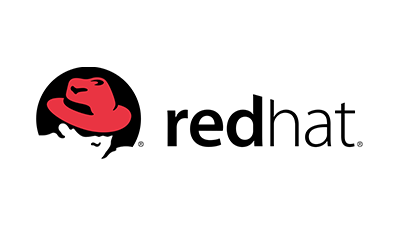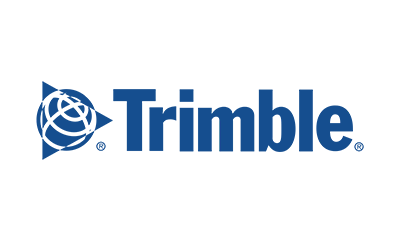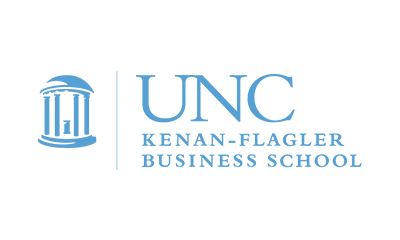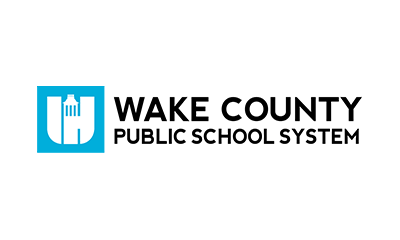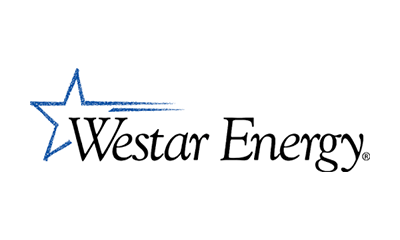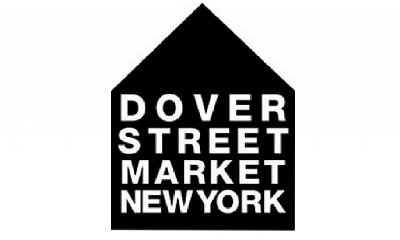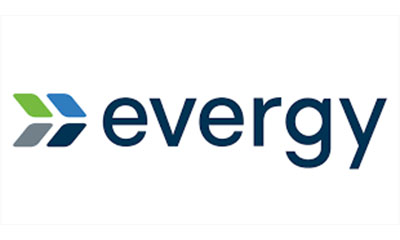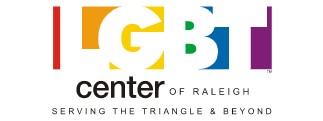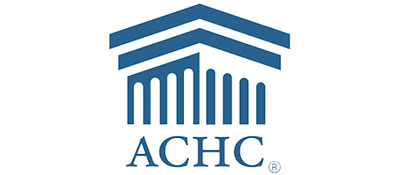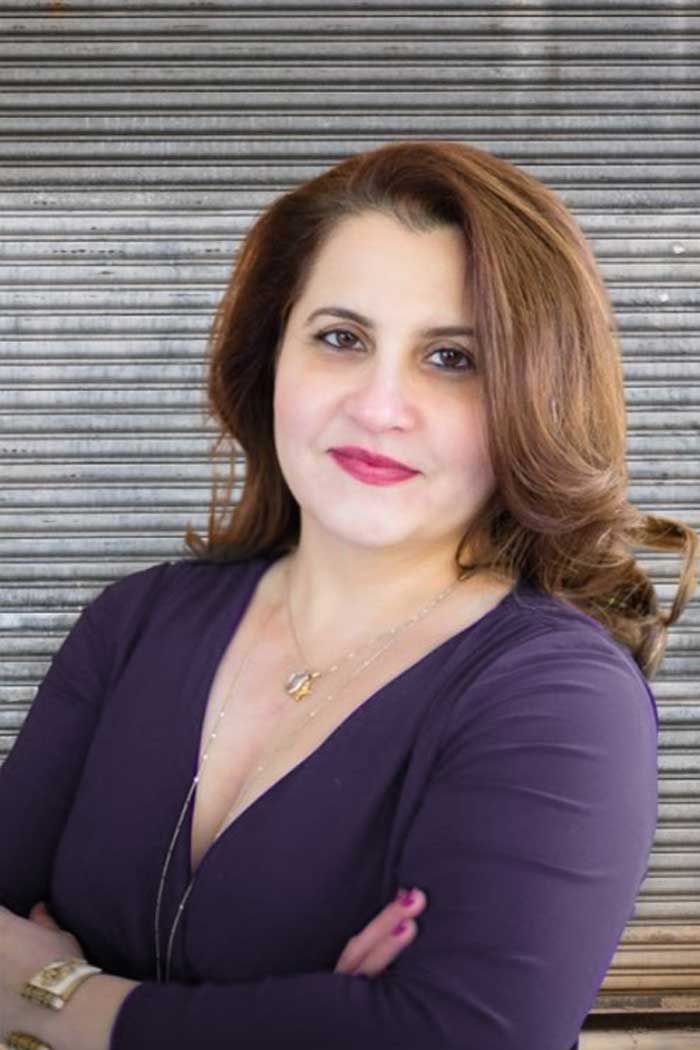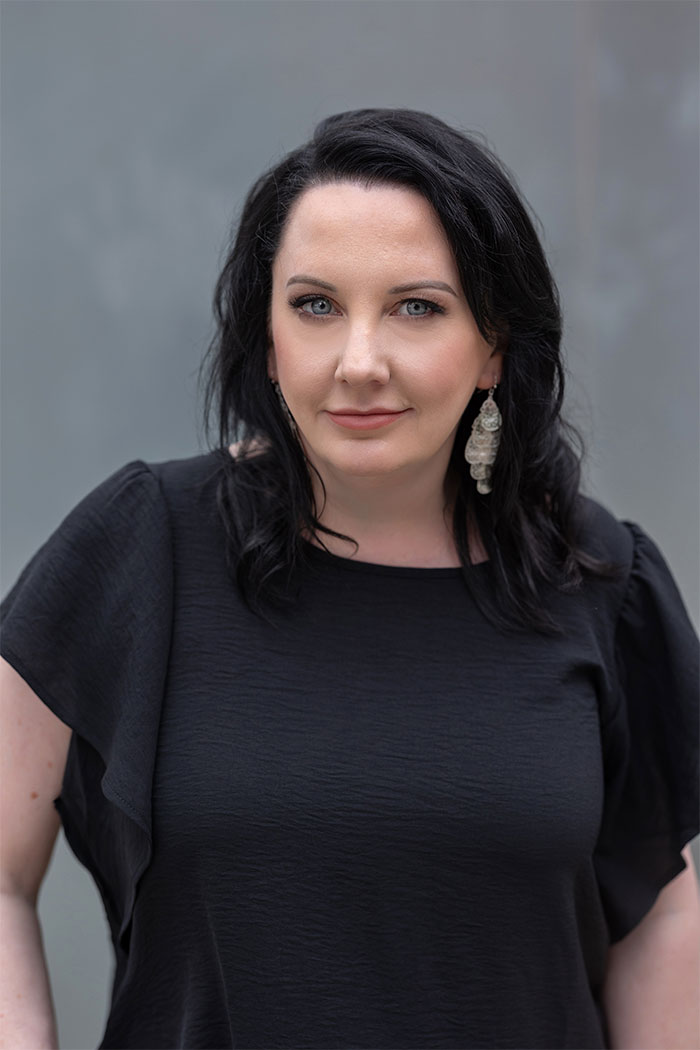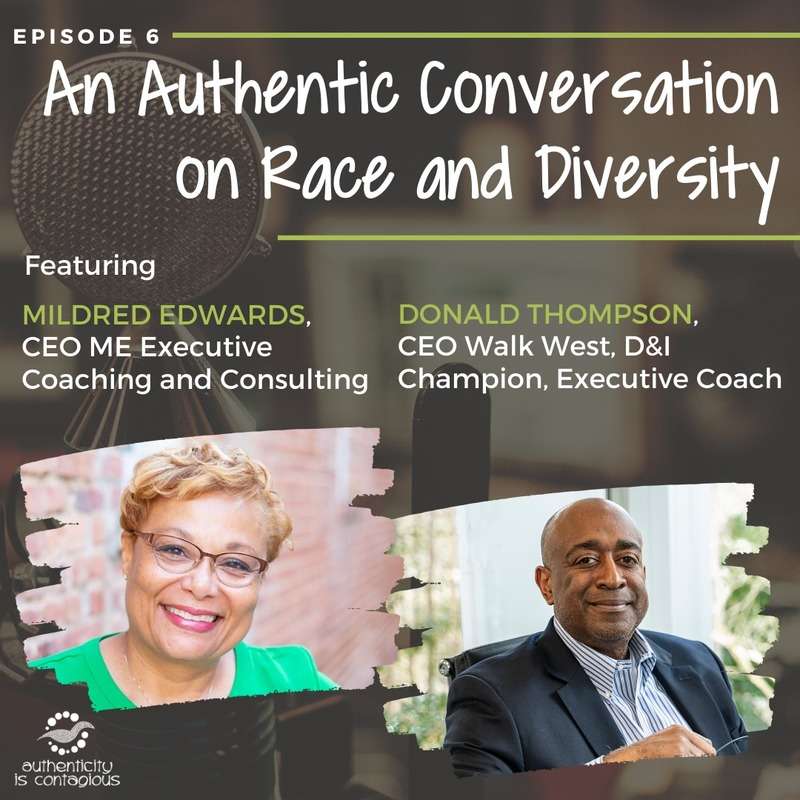
Episode 6
An Authentic Conversation on Race and Diversity, with Mildred Edwards and Donald Thompson
As leaders in the Diversity and Inclusion space, Mildred Edwards and Donald Thompson are on the show today to talk about race relations in the wake of George Floyd’s murder, if there’s hope for the country, and how diversity and inclusion practices in the workplace can help create a more equitable future.
SHOW NOTES
Mildred Edwards
MEExecutiveConsulting.com
Donald Thompson
TheDiversityMovement.com
Diversity Beyond the Checkbox Podcast
The Donald Thompson Podcast
Founder of Authentic Leadership Advisors and Authentic Leadership Advisors Academy, Kathleen O’Grady is a visionary leadership coach and fearless leader. She supports driven individuals and organizations to achieve the impossible. Her ability to act as a catalyst for people to discover, rediscover, and embrace their unique genius is what makes Kathleen one of the most sought-after global executive coaches. She is a two-times past president of the International Coaching Federation Raleigh Chapter, and her work is featured in web articles by the NYTimes.com, Huffingtonpost.com, Forbes.com, and eFinancialCareers.com.
Her real-world stories, practical tools, and actionable insights help clients step out of their comfort zone to create authentic meaning and purpose in their life and work. By embracing change, Kathleen believes everyone can achieve something extraordinary.
Authenticity is Contagious is produced by Earfluence. Intro and outro music provided by Autumn Rose Brand.
Transcript
Kathleen O’Grady: I think we might as well just dive in cause I’ve been, I’ve been visualizing this conversation since a couple of days ago, and most importantly this morning when watching the news on my phone, and I’ve already shed some tears today. So welcome everybody. We are here on the authenticity is contagious podcast and it is May 28th, 2020. I’m going to introduce my amazing guests to you in a moment, but first I want to start out by saying that we’re coming into our sixth episode, give or take, of this brand new podcast. And so far we’ve been very committed to being real about what’s going on in the world and who people are and, and our potential, but also our darkness. So I feel like today’s episode in particular, there’s no way we can put a positive spin on it. It just is what it is.
I am here graced with Mildred Edwards and Donald Thompson. Mildred works with me at Authentic Leadership Advisors Academy. She is also the owner of M.E. Coaching and consulting, and M.E. standing for Mildred Edwards and also the importance of, of knowing yourself and Mildred, I could take a whole episode just describing her accomplishments.
She has contributed to just about every sector, with the exception of military, but you know, she’s still young, give her time. Mildred, among other amazing contributions to humanity is a chair of the Kansas advisory committee for the U.S. Commission on civil rights. I could go on and on. So Mildred, welcome.
Then we have sir Donald Thompson, a very near and dear person who keeps popping up in my life in all the best ways, and I have to read from a piece of paper because he’s extremely accomplished too. So here we go. Donald is the CEO of the diversity movement. He’s the host of season one of the Diversity Beyond the Checkbox podcast.
He is the author of an ebook titled, Diversity and Inclusion in the Workplace. He is a certified diversity executive and conducts workshops with C suite executives of leading organizations who are looking to develop, expand, or optimize their diversity and inclusion practices. Welcome Don. So here we are.
I really wanted to just create the space for this conversation to play out. I don’t really have a script. I don’t really think we know from one minute to the next, how to feel about everything that’s going on in the world. But when I checked in with Mildred, yesterday evening in advance of our conversation today, it’s just like every time I scroll through my news feed, there’s something else.
That is just atrociously occurring to people of color in this country, specifically in this country. You know, it’s one thing to talk about diversity and inclusion in the workplace, and that’s extremely important, but it’s, it’s a much larger pandemic of its own. And so I just kind of want to. Start out very generalized and hear from each of you for maybe a couple of minutes, what you’re passionate about in this very moment that you want people to hear as they listen to this podcast.
Mildred Edwards: Don and I had an opportunity to talk and just to really think about what are some of the best ways that we could frame our thinking around this issue. It is big and it is growing at rapid rates.
So when we think about how we best serve, the communities, the organization, and the people that we work with, I like to approach this from the perspective that we as a society have got to get better at not only investigating and documenting all of the things that we are experiencing, but also framing our next steps in a way that we’re creating allies and we’re creating a support systems and that we are deliberate about addressing the issues that are common. Like you said, Kathleen, watching this and newsfeeds, and yes, it tugs at our hearts, but we have got to make progress. This is atrocious and we’re better than this.
Kathleen O’Grady: Absolutely. Don.
Donald Thompson: Yeah. For me, it’s, you know, it’s, it’s beyond disappointing, right? It’s, it’s almost like I’m one of the hardest people to get discouraged because I have an optimistic view on almost everything. Right. And challenges are meant to grow your perseverance and your strength, but even within that optimism, there is a reality of how do you survive in a country that doesn’t love you?
And how do you, how do you operate in an arena where the rules are set against you? That’s fine as an African American male, I get that. I’ve been raised with that perspective that if I’m going to grow and achieve, I’ve got to do twice as much as the next person. Got it, but I should be able to go take a jog.
I should be able to birdwatch in central park. I should be able to have the laws of this country that protect me from a death sentence. For a petty crime or even a felony, or even any atrocious crime. I shouldn’t be subject to an environment that it’s okay to take my life with no repercussion and then it’s okay to make me less than as a part of the institutional structure of our country.
And so the last few days hasn’t changed my perspective in terms of what’s wrong, it is increased my resolve that we’re past time for doing something in a substantial way. And the talk is past. We have to figure out how to address some of these systemic issues and bring everybody together in a way that we can do so that we can really move forward.
But it’s, it’s pretty tough right now, from where I’m sitting.
Kathleen O’Grady: Yeah. I don’t know if there is a term for this in, DNI for those that don’t know what that is, it’s diversity and inclusion. Everything has an acronym. So in, in the terms of of DNI, is there a word for what you know, white people are feeling about just this overwhelming guilt?
Donald Thompson: In my opinion, I don’t, I don’t think it is this construct of the diversity inclusion component. As much as when I talk to my friends of all backgrounds about some of the things that are going on, it is more of a function of your level of humanity. Like we’re, we’re, we’re past the common structures of DNI and organizational change and different things.
It’s whether or not we have a country that we truly can be proud of and where we can be decent to other people or not, and we have to choose, right? And so to me it’s about human decency. And I think that supersedes any level of corporate or socioeconomic construct that we’re talking about. It’s whether or not we want to build a society that everyone has basic,
think about this. We talk a lot about other countries and human rights. Like we go to other countries as Americans and say, we want to advocate for human rights because in America we portray ourselves that we have a baseline of human rights that are here. We have to come to terms that it’s not true, and that’s going to be a hard element for us all to deal with is that the reality is we are not who we portray.
And so therefore we’re going to have to kind of dig deep enough and be in some level of truth and have to reinvent the soul of our country. And that’s going to be a tough pull because a lot of people are going to resist the admission that we’re not who we say. And until we do that, that’s when we’re going to be able to build the foundation to grow and become who we want to be.
Right, who we aspire to be. And so that’s, I don’t think there’s a word for it, but I think human decency is in the DNA construct because we’re at the human decency discussion.
Mildred Edwards: I agree. And I think some of the things that I think about is, our country was founded on an inequitable distribution of economics, right? And so this power kind of a structure is created deliberately. We have been talking about naming, you know, we’ve been trying to call, things that are occurring and put names to them so we can better study them and we can better understand them and we can better articulate then what is happening and be more unified in how we’re discussing some of these things that are happening.
But the reality is, is that it’s always been present. We were founded based on that reality, and so until we are willing as a nation to break down the structures that have really allowed us to be at this place in such a vivid way now, has it always been occurring. Absolutely, right. But we have gotten embolden in how we are playing this, this situation out, and we have been permissive and we have been passive and we have not addressed this because it would have to take our really looking at how do we break and deconstruct something that we thought is okay.
And it’s got us this far and it’s really sad that there are people that aren’t going to be willing to move and to lose in this because they have this zero sum mentality. For me to give up something for you to have something I’m losing. And so this whole consciousness raising that needs to happen, I think is really what I’m more interested in our doing.
We’ve done the, how do we name it, how do we call it? How do we teach people what it is? How do we try to put in policies and police the issue in a way within corporations and organizations and you know, and saying, gotcha. But you know enough already. How do we raise the consciousness of our society in a way that we are operating as our best selves, is really the question.
Donald Thompson: Yeah. I would, I would say, you know, Kathleen, you mentioned the guilt that white people may feel, and I’m speaking for me personally, not my organization, but I don’t, I don’t need that. What we need from my perspective is to translate that energy cause the empathy is real and the emotion is real from people that want to be allies.
I believe that in my heart of hearts. It’s the accountability measures in the circles that you’re in that we can’t speak to. It’s the off color joke that we would kind of let slide that we can’t do that. It’s the PTA meetings at schools and really understanding what are we teaching about our history.
It’s about understanding what inclusive languages to the degree that we can have a much more frank but uplifting dialogue. So in my opinion, there a lot of different things that we can do together in the how, even this platform today where we’re giving ourselves the frame to speak and then we’ll distribute it because we all have different audiences of influence.
And so we have to prepare ourselves so that we can be effective in our audiences of influence. And so one of the things that we can all do if we’re going to make change, and I’ll use a different from race, I have three daughters. I had to go through an evolution evolution of not speaking kind of man speak and things that my daughters would say, you wouldn’t say that if that was a man, right? Like they would, but they would call me out. They would bring me to account and they would hold me accountable to be better. They weren’t judging me for where I was, but they were holding me accountable to be better in the next conversation because I created that freedom as I raised them to speak their mind and speak their whole truth.
And so for white people, on behalf of African Americans, there’s country clubs that you’re in. There’s board rooms that you’re in that you can ask the question of, why does everyone only look like us. There is onboarding that occurs in companies, and if there’s nothing in that onboarding about diversity and inclusion, inclusive language, and how to think about diversity even broader than race, then all of a sudden you’re not using the leadership platform that we all have to do all that you can do.
Right? And so those are some of the simple things that I think that, that people that care, and there’s a lot of people that do, can start to make changes in their community.
Kathleen O’Grady: When we talk about, cause you, I want to tie together what you both just said cause it’s really important when we talk about raising people’s consciousness and creating.
Alliances that are are not just all talk, but action. I feel like, at least from the story you shared about your daughter’s Don and my experience of, of getting married three years ago to a Hispanic man and just, you don’t really get to empathize and understand people who are different until you love them.
And so I really believe that love is the answer, that if we can really not focus on the elimination of fear and hate, but more focus on the development and the fostering of love, this could, this could be the pivot point, because that’s what this is all about. It’s, it’s people not loving themselves and therefore trying to point the finger outward as to what’s wrong with everybody else.
Everybody who hates themselves looks for scapegoat for that. And so, you know, in coaching and leadership, we see this a lot. It’s the angry leaders that the bully leaders are the ones who are the most insecure. And so then, you know, you add socioeconomic differences, race differences, gender differences, and then you have like an absolute dumpster fire of, of fear and judgment.
And so what, how do you put out the fire? So what I keep coming back to is like the people who were standing over George, they were like, I love this person. He’s part of my community. I can’t let this happen. Something has to be done. But the people who don’t love that person, they just stood around and let it happen.
So I guess my question to you guys is, how do we access the love.
Mildred Edwards: You know, love to me, the opposite of love is not hate. It’s fear. And you know, everybody is doing what they can to protect themselves, right? The CEO who arrived at that position based on privilege is trying to protect that image. The police officer who is charged with just capturing someone bigger. Someone that they’re afraid of, someone that they’re threatened by just walking down the street. Right? They fear their loss of life. When you think about individuals that have people moving into their neighborhoods that they don’t like the lifestyles, be it gender related, be it sexuality related, or be it race related, and then how they show then the fear of their impression of the value of their neighborhood with someone moving in. Everyone is trying to retain some sort of semblance of I am, I belong here and I am going to protect this, whatever it is, and I don’t want to lose. I don’t want to lose anything that I have. Whether it’s based on privilege or what have you.
So we often think about love and asking people to, as Don said, you know, have a respect for humanity in a way that allows you, if even if you don’t love me, don’t treat me as if I don’t belong where you are because you’re better. Right? We’re all divinely made and uniquely created. And when we talk about authenticity through the work that we do here, without heralding, be yourself, you know, show up your best self and do the things that you gotta do.
But then we have these neurological pathways that have been created that say, work harder, do more when you see someone that is different or the other, fear them because you might lose something as a result of their presence. And so until we’re willing to say that we have these fight, flight, or freeze kind of responses to things that we fear and that we are no longer hunters and gatherers, we don’t have to run down a breakfast store.
You know, we can stop. We can think, we can feel, and we can rationalize a better way of being. By just being deliberate about it and deciding that we can do this through having a higher level of consciousness and being responsible for the reactions that we have. There’s one thing to have a reaction. There’s another thing to act it out.
Donald Thompson: Yeah, that’s right. I think that, you know, my athletic background. I’m the son of a football coach, and my upbringing allowed me to spend time with a lot of different people in sports and from a lot of different backgrounds and and also in my dad’s profession. And a common goal helps unite people.
Right? So if you think about our country after nine 11 right? It was one of that for about a month, right? Yeah. Two months. Three months. Right? We had a common enemy. We were going to figure out who attacked America, and then you take a step back too, or, or fast forward to present day.
And we have a pandemic and we can’t decide country whether we should wear masks or not. The problem in the last 20 years is there’s been an assault on truth. And so therefore, if I don’t agree with something that is a fact, I can create my own facts, which then creates confusion, and then people don’t know who to trust.
So our environment for loving, trusting, and working together has actually taken a very significant backwards trajectory because it’s so difficult to know who’s for you and who’s against you, who’s on the same side with you, who’s not. Because our leadership language is so aggressively negative throughout our country.
And then what occurs is when these incidents occur, they often get warped in terms of coverage, in terms of the amount of things that you can actually hear, perceive, and understand. Because the macro information tunnel is me versus them, us versus them, us versus them. And if there were not video of this police officer with a knee on the neck of a black man and killing him on live TV, basically. This would have been another thing that was easy to brush aside. The video can cut through the noise. We’ve got to figure out how do we create an environment where we’re just as allergic to the reaction when we hear about it, when we read about it, when the numbers say that it’s there.
Not just the times that we see the actual video, because this is something in terms of inequity, in terms of violence against African American males in particular that is more than reoccurring. But I will say this and try not to ramble. I do think that there are a group of people that are not black, that are white, that are Hispanic, that are Asian, Indian, that don’t want to see us suffer in this way.
And they want to know what to do. They want to know how they can be a part of change. And so a couple of things I like to share with people in terms of doing that very specifically is I do think education before action matters. Because when you do start to have a voice on something, you should have a foundation of knowledge.
And so there are courses that you can take around diversity and inclusion. There are courses you can take on unconscious bias. You may not want to take to the streets and be a part of a March on biases on policing, but you may be an employer that’s going to hire 10 people next month. And if you take unconscious bias training and you’re a better manager and you’re a better interviewer to give people that don’t look like you, a better opportunity.
All of those little things work together to start making the change that we want in the systems that are hurting us, not just the individual.
Kathleen O’Grady: You got me. I was going to ask you that. So I also want to ask Mildred, what do you recommend to those of us that want to be allies.
Mildred Edwards: It’s really just giving deliberate and very, very deep thought to what can I do and who needs to feel what I feel in my circle. Right? And these conversations, they can be structured or unstructured, right. Formal or informal. And just being able to say that I have, like Don said, access to a wide range of people that should we care enough to do something, we could make a difference. And so it starts with one individual at a time and each person reaching individuals that like them, that really could rally in support of communities that are at risk.
Communities that are experiencing disparity, communities that have inequities, that have persisted over time. This is playing out in our culture right now in terms of the assault on the black male, but historically we have had health disparities that have been in existence and oftentimes deliberately perpetuated in the name of science, on people of color. We have had individuals, when I think about the way we think about the LBGTQIA population, right? And how we’re responding to, we’re passing policies so they could live their lives in the manner in which they, they desire, but then we’re then having hate rise up on the other side of the city that is keeping them from purchasing the cake for the wedding.
And so when we think about all of the things that people are doing, gender base, any isms, right? All the isms that our nation is confronted with on a day to day basis, the divisiveness by which we live our lives on a day to day basis. It’s what are you doing to cross over to learn more, to then rally people on behalf of what is right.
Right? What is true, what is real and what is possible, and then creating actively, ways in which you are playing a role in the solution then if you are just stopping at empathy then it matters not.
Donald Thompson: Yep. I think, I think Kathleen, the one thing I would add in specific for the wonderful work that you and Mildred are doing, if you think about executive coaching in the access that you have to current and emerging leaders, you have an opportunity to influence the influential.
And that is a very, very important tip of the spear. And one of the things in my focus area with DNI and the diversity movement is that we’ve got a full team that are looking at the broader construct of, of DNI in the workplace and different things. My personal focus is in the C suite because being a business executive, being an entrepreneur, being an investor, I’m traveling in circles with leaders that if I get one or two a month to think different than they thought before, it gives exponential impact because they’re deciding what companies get funded or not.
They’re deciding who gets promoted or not. They’re deciding who gets hired, and this is the curve ball piece, but a lot of fun. They’re also supporting who gets elected.
Kathleen O’Grady: Well, that’s very true. And I want to say thank you for, for pointing that out. And another thing that reminds me of, of different classes that Mildred and I sat in on together at Authentic Leadership Advisors Academy is that, you know, the whole purpose of training new, authentic leadership coaches. It’s not only so that I and my team of coaches can coach these executives to have this impact, but then I have a whole slurry of other coaches that are, are working towards that same goal and that same movement of eliminating fear, accessing love and connection and heart-based leadership.
And so, Mildred, do you remember there was that one cohort where I think we got into the, one of the deepest conversations ever on, you know, race and people of color and what’s happening to students who are, you know, being imprisoned for skipping class at school. Like just insanity and there was so much energy in that conversation that I think we, we just completely forgot about the curriculum for a good hour.
But the beautiful thing is like, this is the real learning. It doesn’t matter what it says on the page of the manual like what really matters about what happens at Authentic Leadership Advisors Academy is people come in and they are asked the question, who was I before I started to label myself?
Mildred Edwards: You’re speaking to this whole concept of white fragility, right? It’s like, why can’t we have these conversations? Why isn’t it the norm that when it’s something that, or someone that we don’t understand, we seek to build a relationship with them to better understand and what is blocking us from doing that? So that was a very enlightened conversation and it’s, and it’s a way that these things can play out in a very positive way.
Right? Because we’re all learning what I’ve learned in working in corporate America as a learning and talent development professional in human resources and working in concert with the diversity and inclusion rep who was really put in place to design ways that we could not only recruit but retain people of color in a historic, all white kind of industry, the, energy industry. We were recruiting, well-qualified, well-trained, very professional individuals of color to work for this company. And it just seemed like we put them in the chair on the Ferris wheel and when we turned our head, when they got on the other side, they fell out. Right? So we, we continue to bring in the numbers and we were kicking them out on the other side of the Ferris wheel.
And so yes, we have to be deliberate about putting in programs and mechanisms and ways for the top leadership to look at their systems and make changes. And so that, that intellectual approach to dealing with this as necessary to develop that top down mandate. But if we don’t hit the population from the neck down, when we put these systems in place, they’re not sustained, they’re not maintained, and oftentimes we put people in precarious and sometimes dangerous situations by attempting to infiltrate a system that isn’t prepared and their level of readiness or consciousness is so low that you could be more damaging putting a person of color or a person that has a, a sexuality or sexual orientation that differs from the majority in that population. You can put them at risk more so and who wants to be the poster child for that type of experience.
Kathleen O’Grady: And I want to say going back to what Don touched on earlier, we have an election coming up and I get so frustrated with this notion of like, well, you know, in business you should really stay away from politics because how can you politicize humanity?
How can you politicize people dying? That’s the whole, I guess, rhetoric that is stemming from that, you know, alternative facts way of describing what’s real. And so I think what we need is we just need to all reassess. Like what? What is real? Go ahead Mildred.
Mildred Edwards: We have a president that won’t hang the presidential portrait of a african-American past president in the white house. If that isn’t politicizing racism, what is?
Donald Thompson: Right and the thing about it is, so if you just take that snapshot right, of what Mildred just said, and you don’t do anything about policy difference and lower taxes, high taxes, wall, no wall, you just take that snapshot and then you take the other snapshot about our current president and he rose to power with birtherism claiming that an African American president wasn’t a citizen. Now, stop sentence. I ,don’t even, don’t even talk about lower taxes and I want to do this pro-business. All that’s fine. But when we’re talking about race at the highest levels of our country. Then we have to talk about the fact that structurally we’ve allowed the last four or five years to that to be okay.
And people now who listened to the president, there was a guy on one of the news stations that said, if our president is not wearing a mask, then I don’t want to wear a mask. Okay. That lets us understand the level of influence, the rhetoric of all of our leaders has on the fabric within our country.
People always want to talk to me and debate the policies and principles. That’s fine to have that discussion. What we have to get back to it, all levels of government, all levels of leadership, back to your comment on authenticity is what is true and what is not true and the rhetoric of leaders matters.
The rhetoric of me as a CEO matters to the people that are in our country, so that me in our company, so that means I have a higher level of accountability, not a lower standard of, I get to say what I want. And so we have to flip it around again, that our leaders have to on all sides of the aisle. It just so happens our president is a obvious example, right?
But it’s across the spectrum. The fact of the matter is we have to raise the consciousness of leadership language, and that gets back to the language of inclusion. How do we learn to talk in a way that we’re not nipping at each other and poking each other at every conversation? But yeah, there’s a lot on that one.
Kathleen O’Grady: It brings me back to 2008 I went to Montreal for coaching ICF International Coaching Federation conference, and it was my first time in Canada, and I remember going through the airport and just seeing the, the magazine covers with Barack Obama’s face because he had recently been elected the first African American president of the United States.
And I just remember my heart was just welling up with pride and the Canadians were, were approaching all the Americans and they’re like, congratulations, you must be so excited, Canada is so excited and you know, this is, this is wonderful for everyone and then the pendulum swings back, right?
Really, really, really strongly in the opposite direction. And so the only thing that I’m really holding onto right now is the hope and the belief that the pendulum will swing once again and that somehow it will foster some common ground.
Donald Thompson: I’m not as optimistic, and I’ll turn it over to Mildred. Here’s my thing on on that. I think that the last several years is good from this regard, and a friend of mine said, well, aren’t you for this current president? It’ll lower your taxes. You’re in the upper, you know, blah, blah, blah and I was like, well I would, I would never sell my humanity for lower taxes.
So I don’t really care. Right? Like that’s not how I vote. Right? And some people do, some people don’t like that’s not how I vote. And I’m a cynical independent, just so we’re clear. I think we need term limits cause I think all of them are full of shit all across the board. Right? But what the last couple of years have shown us is who we really are as a country and that’s what we’ve got to deal with, right? Right now, we’re almost over the disbelief is this who we really are, and we’re almost to the point to where now we can flip it and there’s enough people of all backgrounds, ages, races, colors, generations that want it to be different that I do think the pendulum may or may not occur in the white house, but I do feel it and see it on the ground when I’m talking to young people, when I’m talking to business people, that, that people are starting to have had enough of not seeing human decency as a representative of our country. And that’s the part where I am with you. And I do see some, some hope for optimism.
Kathleen O’Grady: Yeah. What about you Mildred?
Mildred Edwards: I’m saddened that we are a country that was not only. I mean, we were founded by immigrants, and when I think about the migration patterns of Africans, right? Other countries, I mean, well, before forced migration to the United States, Africans had power in Asian nations.
They’ve held power in Spain. They’ve held power, I mean we have migrated throughout this world since antiquity. In the Roman culture, I mean, it is just, and you’ve never heard of any of the types of just devastation in any of those nations as a result of those migration patterns. And here we are, shameful America and we are having a hard time admitting that we’re broken, to the point that we are still stuck doing nothing about things that have been occurring since the sixties and yet we’re saying we’re making progress because we’ve put policies in place and we’ve put people in places that didn’t have access before, but the gap is ever widening. Don and I are the exception to many of the things that are occurring, but Don and I also have first cousins that are suffering, greatly. We have family members that have not had the access to opportunity that we’ve had, and they have been stuck in a system that does not support their growth or them getting better in this nation.
So am I optimistic? I can’t help but be given the work that I am attempting to really disseminate through Raleigh coaching and other organizations that I have an opportunity to work with and, and I’ve got to arrive at there are people that I will have an opportunity to coach that are, that can be changed as a result of our conversations and them becoming their best selves and then that will like you articulated Kathleen about the Academy and that will have impact and repercussions down the line that will be a benefit to us, but we cannot take our foot off the pedal. We cannot assume that if we don’t see it on the national news or we don’t see it blatantly, that it doesn’t exist.
We have to be responsible enough to say, I have a role in this, regardless of the impact that it has on me directly. And we’ve gotta be able to reach people, but no below the neck to make sure that they are feeling that in a way and showing up differently in order for us to make the progress that we desire.
Kathleen O’Grady: It’s almost like the, the roach concept, right? If you see one Roach, you know there’s gotta be like hundreds behind them.
Donald Thompson: They didn’t come to the party by themselves.
Mildred Edwards: Exactly.
Kathleen O’Grady: So we gotta, we gotta smoke out those roaches and, in the way to kind of wrap up this, this conversation that could go on for days. I want to say, you know, if anything, I’m grateful that I have brought the two of you, Don and and Mildred together so that you can know each other and collaborate and further solidify all the different networks that are working towards this common goal.
And I would love to be involved in any way I can. Perhaps this, is just the beginning of other podcasts. And so I want to just thank you guys both, but before we go, I just wanted to give Don one last chance to, to have your final thoughts on this episode.
Donald Thompson: Well, one, thank you guys so much for having me and Mildred for reaching out for our conversation even yesterday, so that when we talked today, we were just friends and all of us together.
The final thing that I would say is that there’s a lot of educational opportunities out there. Right? And we’ve built a course for diversity and inclusion, beyond the check box. And it’s basically a foundational, e-learning course about DNI, and it is not just about race, it’s about generational, it’s about neuro diversity.
It’s about how to build out programming because I think if you get focused on getting smarter. If you get focused on increasing your proximity to others that are different than you, you’re going to be a more powerful ally because it’s going to be based on the emotion and the education. The emotion is great and powerful, but when it’s combined with education, you’re going to tell a more powerful story to advocate on behalf of others and use your strength for that common good.
And the thing I would say is if I can be a benefit to any of the teammates that you guys are working with or anything that you guys are doing. I 100% want to do it. So the answer is yes. It’s just a function of getting it on the schedule, right? So all you have to do is, hey, I wonder if Don will help us with, the answer is yes, and we just got to figure out the calendar.
So thank you for having me.
Kathleen O’Grady: You’re very welcome. So Mildred, what are some of the offerings that you have going on right now that are supporting this mission.
Mildred Edwards: I have an opportunity, not only through my coaching to really help leaders to better understand the role that they play in working to address these issues in each of the sectors in which they’re involved.
But you know, I work through the U.S. Commission on civil rights, we’re writing policy. We are trying to create the number of things that our nation needs to address and how we are looking at things from that perspective as well as the work that Don is doing, the front of the Csuite, and then there’s the front of the classroom.
And this is a multipronged approach. You can’t do this work by doing one thing. And so we have to think about how do you reach individuals where they are. Recognizing the fact that we’re all in many different levels and many different spaces and places. And so it takes your convening of minds like this to really think about what does that multi-pronged, multilevel approach really look like and how do we bring that to the world in a way that it’s beneficial?
So I’m glad to have a opportunity to be a part of this. I call it a brainstorming session because goodness only knows what could come out of, just this opportunity to, to just think about it in a public way. So thank you so much, Kathleen, for the opportunity.
Donald Thompson: One of the things that I would recommend that you guys do, you have a platform and you have a lot of different leaders in it, continue to expand this kind of conversation because a lot of times people need an opportunity to express what they’re feeling.
Mildred Edwards: Yeah.
Donald Thompson: With other people that are encouraging and challenging, right? So you can have a real discussion on race, on inequity and things like that because both of you are strong leaders and your, your emotional strength doesn’t get out of balance because somebody might not understand or disagree. And so that’s a responsibility, you guys have to maybe have some of these mini conversations. And as I’m talking to people, there’s a concept of in, you know, Oprah’s book club or women have book clubs and different things and guys do, but generally ladies have more book clubs than, than guys. But that construct is you get together around a topic and you read and educate first, then you discuss, right?
And those kinds of small forums is how we can all create that ripple in the water. And create new thoughts, new thinking, but push it, push it forward because it’s hard to go back to negative behavior when you’ve been around such positive examples. And one of the things that they do, the United States treasury at a secret service, when they’re looking at counterfeit bills, they don’t teach their agents what’s wrong with money.
They teach their agents what good money looks like. So then when they become intimate with everything about what a $20 bill looks like, what a hundred dollar bill it looks like, it becomes instantaneous when they see that counterfeit bill or they feel it because they become so intimate with what is right.
And so what we need to do as leaders is we need to help people be so focused on understanding what is right, what an authentic leader is, all of those different things that now when we see it, that’s not right. I need to steer away from that. And so you guys have a great, a great platform and, and I’m excited.
Kathleen O’Grady: It was an honor to have you both.
